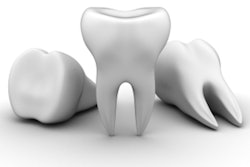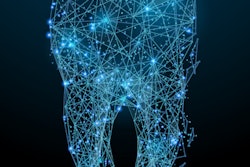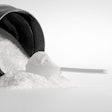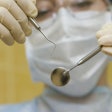
Black stains on primary and permanent teeth may protect against caries. A new review found patients with extrinsic black stains had fewer cavities than the general population. The authors hypothesized the difference could result from biological or nutritional factors.
Researchers from Brazil reviewed more than a dozen studies evaluating whether extrinsic black stains made a difference in the occurrence of caries. They published their systematic review in Caries Research on August 9.
"Extrinsic black stains of a bacterial origin appear as pigmented points in the form of a continuous or broken line near the gingival margin," wrote the authors, led by Dr. Vanessa Silva de Rezende from the Federal University of Jequitinhonha and Mucuri Valleys dental school in Diamantina. "Such stains are likely formed by interactions between hydrogen sulfide produced by chromogenic bacteria and gingival crevicular fluid, which contains iron."
Black stains are relatively common, affecting 2% to 16% of the population, the researchers noted. They're typically on the palatal and lingual tooth surfaces and can be found on primary and permanent teeth.
Previous research has suggested these stains may have a protective effect against caries, so the researchers conducted their own review on the topic. Their quantitative analysis included 13 studies published between 1947 and 2016, and the majority evaluated black stains and caries in 3- to 16-year-old children.
People with extrinsic black stains had fewer dental caries than the general population, the meta-analysis found.
Some authors suggested that these patients may have biological protections against caries-causing bacteria. For instance, the saliva of patients with black stains contained more calcium and was better at reducing mouth acidity. In addition, these patients had lower levels of acid-producing bacteria, including Streptococcus.
The link between black stains and fewer caries could also be attributed to diet, other authors hypothesized. Eating an iron-rich diet has been linked to dental staining in previous research, and iron is also associated with an anticaries effect.
"The etiology of the black stain is unclear, and its relationship with caries has not yet been fully established," the review authors wrote. "Therefore, longitudinal studies are needed that consider all possible confounding factors and include microbiological and biochemical analyses, as well as analysis of hygiene habits so that the causal relationship between extrinsic black stains and dental caries can be better established."



















